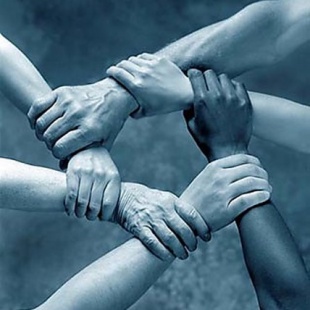China continues to champion global cooperation


With the numbers of fatalities continuing to escalate worldwide it is not easy now to look beyond the COVID-19 pandemic.
The big question, though, is whether the crisis will lead to a fundamental change in how the world we all live in operates.
Will we all realize that all the major problems we face such as this one, climate change or antibiotic resistance are global and need global solutions with countries working together?
Or do we retreat behind our own national borders and try and defend our own bit of the world as best we can?
Before the pandemic it was clear which route some countries preferred. There is no ambiguity in the slogan, America First.
There is also no ambiguity in China's position, which sees international cooperation as vital, particularly with countries in the developing world, which the West often marginalizes.
President Xi Jinping said it was imperative for the international community to work together at the recent G20 Extraordinary Leaders' Summit.
"We must comprehensively step up international cooperation and foster greater synergy so that humanity as one could win the battle against such a major infectious disease," he said in his speech by videoconference.
Xi's ideas are, of course, embodied in his concept of a community of shared future for mankind. It is this philosophy that underpins his signature Belt and Road Initiative, aimed at fostering infrastructure and other links and bonds between countries.
Someone who has thought a lot about the implications of the pandemic is Kishore Mahbubani, the former diplomat and one of Asia's leading thinkers, who I recently caught up with.
He is about to publish a new book, Has China Won?, of which I have had a review copy and which makes a solid case as to why the governance of the Communist Party of China is so vital now for global stability.
He believes one of the lasting consequences of the pandemic could be a move away from a US-centric form of globalization to a more China-centric version.
One of the reasons for this is that the Americans have already lost faith in their own system of free trade, the lifeblood of globalization since the 1990s. They now see free trade agreements as increasingly toxic, according to Mahbubani.
The academic argues that the pandemic has raised the debate about globalization to a new level, in that it is no longer just about trade but our common survival.
He says it has demonstrated how interdependent we have become and that is why the concept of a shared future espoused by Xi is so relevant to our times.
Throughout the crisis China has lived up to what underpins this philosophy and acted as a good global citizen. It has sent medical teams and support to many countries around the world, including being one of the first to do so to Italy.
Philippe Legrain, the founder of Open Political Economy Network (OPEN), an international think tank, and a former economic adviser to the president of the European Commission, told me that he believed there had been very little other international cooperation during this crisis with China being an exception.
"Most governments have acted unilaterally. Even within the EU, countries have failed to respond to Italy's urgent request for medical supplies, though China did," he said.
One who has an interesting perspective on this is Ian Goldin, professor of globalization and development at Oxford University and a former economic adviser to the late South African president Nelson Mandela, in that he predicted a pandemic very similar to this one in his book, The Butterfly Defect, published six years ago.
He also believes that no country has done more in terms of speed and scale and helping other countries than China but he says the crisis has certainly shown up weaknesses in the global governance system.
" (It) is totally unfit for 21st century purpose and not least for fighting this pandemic. This thing is developing, notably within the southern hemisphere in places like Africa. These countries are going to need massive support. We are not seeing any of that."
When this is all over there will have to be a rethink about many things, with the state of the global economy to the fore-nobody wants the 2020s to be a repeat of the 1930s.
China's inclusive idea of a shared future is likely to become an increasingly attractive future path and one that many will want to engage with to find the solutions we all so desperately need now.
Contact the writer at andrewmoody@chinadaily.com.cn




































